
by Piya Mukherjee | Aug 31, 2016 | Adolescence, Asia, Being Thankful, India, Piya Mukherjee, Uncategorized
From the pages of a Mother’s Diary
“There are times when it’s easy to lose sight of the fact that my husband and I are blessed to have Abhishek as our child!” I recently said , to a close friend.
You might initially assume that these are the words of a proud parent and that the child is an achiever in the worldly sense of the term. Yes, every child is an achiever in their own way; but the special gifts that every child brings into the lives of their parents are much more meaningful than mere achievements.
The early years:
When Abhi was a toddler and composed tiny poems about Nature, we nick-named him “sunflower” to reflect the innocence and sheer joie de vivre that he expressed at every waking moment. We felt humbled and awed by the fact that this trusting little soul had chosen us to participate in his quest for meaning, to share his curiosity and to gaze at the world with eyes filled with wonder. When we were with him, we found it easy to brush away the dust of old “has-been’s” and “should be’s”. We shrugged off pre-judged notions of what things ought to be, what fun is supposed to look like, what work truly means. We learned to become child-like again. His easy take on life restored our hope in fellow human beings. His intense love for “all creatures big and small” reminded us about how truly interconnected we all are in the fabric of life. Most of all, his trust made us want to be the kind of people he would look up to.
“Practice, don’t preach” became a necessary rule to live by.
Over the years:
As the years rolled by, and the toddler grew into a tween and then a teen, we realized just how much we had learned, thanks to him. One kind of learning was the ability to see the world through his eyes – uncompromising, clear and yet optimistic about the future. The other, more subtle kind of learning was related to our role as parents; were we living the truth of everything that we asked him to be and do? We were not just messengers of a message, we WERE the message.

From the pages of the family album – Unbridled joy in the tiniest of things – who better than a child to teach an adult about this?
A debt to our children:
Could it be that as parents we owe a debt to our children, far greater than what is ever imagined or acknowledged? Our children teach us all about trust, faith, patience and pure, unsullied joy. If we are willing to learn, they teach us what unconditional love is all about. And through our interaction with them, we explore the boundaries of our physical, mental and emotional reserves; learning to stretch ourselves to meet the ever-changing challenges that they bring to our lives. From being self-contained adults, we move to a higher, more intense realm of thinking, feeling and being.
Parents – not just givers, but receivers too:
Perhaps parenting is looked upon as an almost overwhelming responsibility because the focus is frequently on the need to give, give…sigh… and give some more. Granted that the axis of one’s life changes forever when children arrive. One learns, perhaps for the first time, to put someone else first. When we pause to take stock of all that we receive; the joys, the learnings, the richness that imbues everyday moments and makes them into cherished memories, parenting seems like a special gift. A privilege granted by the universe. Hence it would not be incorrect to say: Our children make us into better people!
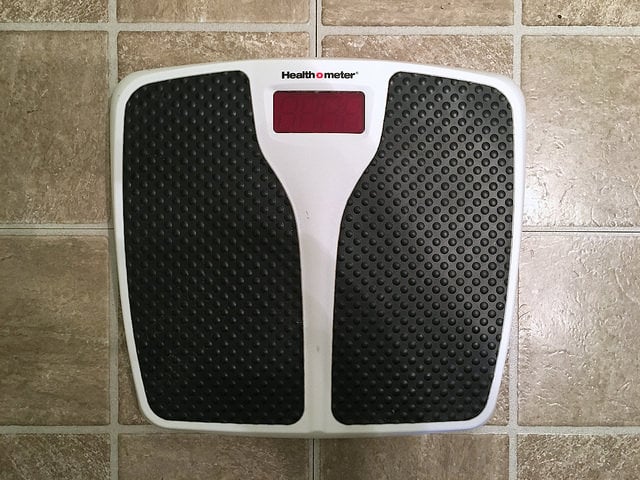
by Ecoziva (Brazil) | Aug 26, 2016 | Body Image, Brazil, Food, Girls, Motherhood, South America, The Americas, Uncategorized, World Motherhood
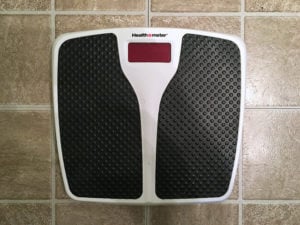 I want to start out by saying that this is not some sort of fat shaming post – much to the contrary.
I want to start out by saying that this is not some sort of fat shaming post – much to the contrary.
Not many years ago I weighed 67 kg (about 147 lbs.) – what is considered to be the “ideal” weight for my height. Now I weigh 105 kg (231 lbs.). Yes, my weight fluctuated back and forth over the years, but I had never weighed so much, not even during my pregnancies.
In fact, people often ask whether my weight gain had anything to do with my pregnancies. “No”, I answer, “I began gaining more weight after my youngest child turned one”. “So what happened?” is often the next question.
Having been the slave of an eating disorder for a long 26 years, I have a lot of answers for that one. Analyzing the motives behind my overeating and binging episodes took up a great portion of my life when I was trying to cure myself, but that is the theme of a sequel to this post.
The fact is, my gaining weight, now that I look back, was actually an important step in rethinking my relationship with food and with my own body.
What I wanted to share today was a handful of things I learned after gaining close to 40 kg (over 80 lbs).
It did take a while for people to notice and start to comment. After all, I am a very tall, big boned woman who likes to wear loose, comfy clothing. But after a certain point people started to comment. A lot.
“What is happening? Have you been to a doctor?”
“You have to work on your self-esteem!”
“Are you pregnant again?”
“Are you absolutely sure you’re not pregnant?”
“You need to try this recipe/diet/exercise program.”
“You need to take care of yourself!”
“Be careful, your husband might start cheating on you if you don’t get your act together!”
And on and on and on…
Most people meant well, especially close friends and family. However, I would stare at the mirror and think I didn’t look that bad. No, I didn’t like having a protuberant tummy for the first non-pregnant time in my life (nothing against tummies, but I have always been more pear shaped). But other than that I thought I looked quite good. Medically I am fine too – after looking at the results of a whopping 26 tests, my doctor said my blood work could have been that of a 15-year-old.
However, other stuff does bother me a lot, the first being the assumptions people started to make, well-meaning or not. Many assume that being fat means you have health issues or very low self-esteem.
Another annoyance is trying to find clothes. For most of my life – even when I was skinny – I have had trouble finding clothes (and shoes!) that fit me, as I am a tall and big boned woman in a region where most ladies are not this large. Now it is so much worse and soooooooo much more expensive, which always feels like I am being punished for some reason.
At some point I began to read about the different movements that have been sparking up around the globe to celebrate women of any size and shape (men too, but there is just so much more pressure on women). I discovered that among all of the studies linking body fat to health issues, there are several that have not found such a clear link. But these are not given nearly as much attention by the media.
All in all, health and body size is a very personal issue that is linked to a huge number of variables. There are also studies that have linked dieting patterns to eating disorders, and teenage girls are at the greatest risk.
So, in the midst of all this, what are the dangers of being a fat mother?
To me the greatest dangers of being a fat mother are forgetting to love my body no matter what, trying to change it to conform to the world’s standards, and obsessing over weight-related issues instead of truly enjoying my life.
I want my children, and my daughter especially, to know that they are worthy of love regardless of what their bodies might look like, and I must model that example as best as possible.
I said this would not be a fat shaming post, but it is not advocating fat either. It is advocating joy, self-love and happiness, no matter what size, shape or state your body is. People (me included, for a long time) tend to think that if you love your body as it is you won’t have the motivation to change. Now I see that not loving my body regardless of anything else only makes things worse, and for a long time only made me want to eat more. Also, for a long time I thought avoiding my body (as in avoiding the mirror) was a good enough substitute for loving it.
There is so much more to say, but for now that is a small piece of my story with my body.
And you? How do you relate to your body? Tell us your story in the comments!
This is an original post to World Moms Network by Eco Ziva of Brazil. Photo credit: Alan Levine. This picture has a creative commons attribution license.
Eco, from the greek oikos means home; Ziva has many meanings and roots, including Hebrew (brilliance, light), Slovenian (goddess of life) and Sanskrit (blessing). In Brazil, where EcoZiva has lived for most of her life, giving birth is often termed “giving the light”; thus, she thought, a mother is “home to light” during the nine months of pregnancy, and so the penname EcoZiva came to be for World Moms Blog.
Born in the USA in a multi-ethnic extended family, EcoZiva is married and the mother of two boys (aged 12 and three) and a five-year-old girl and a three yearboy. She is trained as a biologist and presently an university researcher/professor, but also a volunteer at the local environmental movement.
More Posts

by Karyn Wills | Aug 24, 2016 | Motherhood, New Zealand, Parenting, Uncategorized
It was a very short time ago that I was seven years old imagining that 10 was very grown-up and close to being a teenager, and the Millennium was so far in the future that my head hurt to think about it. Yesterday, or thereabouts, I was 19 recovering from a minor relationship breakup, wondering whether I’d find someone to marry and trying to imagine what it would be like to be a person’s Mum.
Today I am 48 and alone again. I get to be the parent of three incredible human beings and I, pretty much, get to do everything that comes with that. And I’ve never been happier.
I get to get up in the night with my youngest who needs to go to the loo and anyone who has a nightmare or wants a hug. I get calls at random hours to go look at the stars or the moon – “Look I got you a duvet, Mum. Come join me.” It’s not entirely beyond the consciousness of these mini-mes that I am up at 4.50am week days. They know I am also being woken by hot-flushes. They have seen me have sudden moments of realization that the cat isn’t able to get to the litter-box, if I don’t get up immediately and open the door to the garage. They know I suddenly rush about organizing something, right now, right this second before I forget. But they don’t realize I also do all this at 3.00am or 2.10am or 12.55am.
I haven’t read a fiction book for myself for years, though I used to read one a day at times. I rarely exercise, or clothes shop, or get my haircut.
I work where I can laugh and sometimes get real, adult conversation. After work there are the countless errands of groceries or pharmacy visits or book stores or stationers, maybe if I’m lucky catching up with friends. There’s people to call when organizing four lives, the washing to get in and a house to be kept if not clean, at least hygienic. There’s meals to prepare most nights and children to teach how to prepare them on other nights. There’s homework and school meetings and fundraising and parent-teacher interviews to be a part of. And when I get home at night after I’ve been at a school meeting, if the dishes aren’t done it’s my job to at least wash them, and meat to get out of the freezer for the next night’s dinner.
There’s food scraps to be buried and a garden that really needs to be weeded. There’s children to be taught how to organize themselves and supervised to do so, once that’s learned. There’s chores to supervise or check are completed. There’s a cat to be fed and watered.
It’s all on me to get the car to the garage for servicing or repairs. If the house breaks, it’s my responsibility to get it fixed and to pay for those bills. The doctors visits are mine. The dentists visits are mine. The trips to the recycling depot and the dump are all mine. No one changes a light-bulb without me asking it to be done. Sometimes, things have to be ignored, at least temporarily for six months or so. It never ends.
And, it’s true, I’ve never been happier.
I know who I am and I am more likely now to call people on their b.s. that I ever have been before. I adore my house, live minutes from shops and an easy drive to the ocean, and can’t imagine living anywhere else. I have work I love and friends I think are just wonderful. I get out enough with just grown-ups. I have support I could call on, if I really have to. My boys are fabulous when consciousness over-rides testosterone, which is most of the time. And we laugh together hard. And often.
This week my house is an utter mess, my car needs to be taken to the garage, I was in bed at 7.45pm on Monday after 5 and a half hours sleep on Sunday night, I have paperwork that should have been finished a week ago, the cat has a dodgy tummy and my it was my youngest’s turn to become seven.
And, it’s absolutely true:
I’ve never been happier.
Karyn is a teacher, writer and solo mother to three sons. She lives in the sunny wine region of Hawke’s Bay, New Zealand in the city of Napier.
More Posts
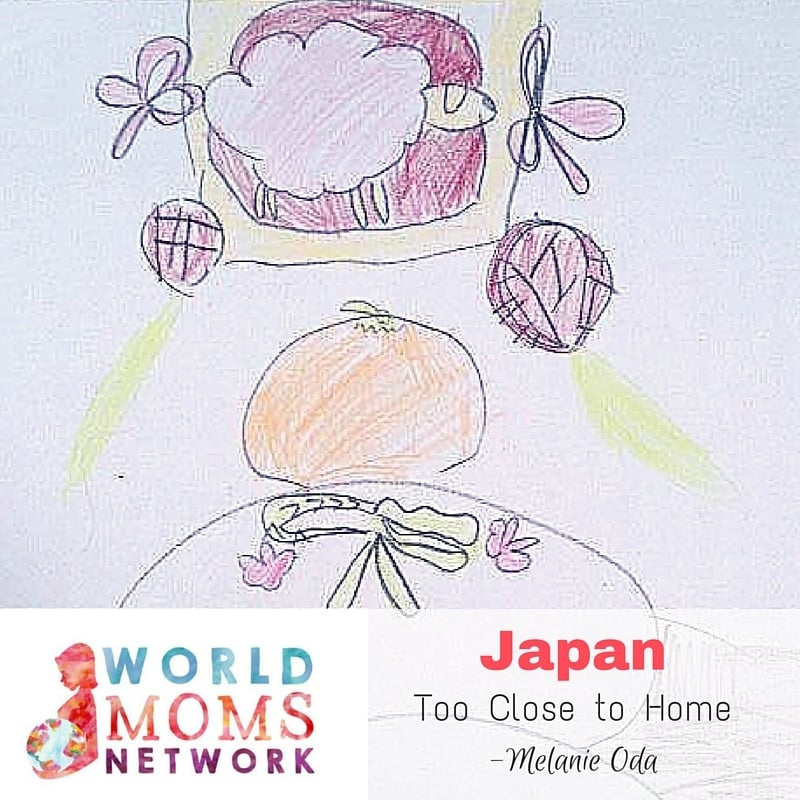
by Melanie Oda (Japan) | Jul 27, 2016 | Asia, Cultural Differences, Culture, Grandparent, Japan, Siblings, Uncategorized
It started out innocently enough. Perhaps because she was the younger child, the second grandchild, her Japanese family just didn’t seem as interested in her as in her older brother.
I thought perhaps since they only had sons, or that my mother-in-law only had brothers, they were not sure how to interact with a small girl.
I suggested things that she liked to do, bring over toys she likes to play with so they could interact. (This resulted in my brother-in-law developing an iron-beads addiction, but had no impact on the grandparents at all.)
Then there were subtle things: talking over her, not listening, not answering when she asked a question. Some people are just like that to children, I thought, though I knew in my heart they hung on every word my son said.
“She is talking, too, let’s listen!” I try to draw attention to her.
Then they joined in the cacophony of voices around us, “Girls don’t sit like that. Girls complain too much.”
“It isn’t only girls,” I try to laugh it off.
We would go their house, and they would put out only one cookie, even though there were two children. “We didn’t think that she would want one.”
I make the children share, or I go to the store for another ice cream or bottle of juice.
She received only half the amount of money at New Years for otoshidama (a cash gift given to children from relatives,) and was specifically told it was because she was a girl. “You must have heard wrong,” said my husband.
When we went home, I made the children pool the money and split it evenly.
Then this year on Children’s Day, we arrived at the in-laws house to find a beautifully wrapped present.
One present.
My heart sank because I knew. I knew that now she would know; that I couldn’t cover it up this time. There was no misunderstanding. This wasn’t a snack brought home on a whim, or an envelope that looked the same on the outside but was different within. This was a gift that had been searched for, lovingly wrapped, put in a place of honor for all to see on a day to honor our children.
But it wasn’t for her.
I saw her eyes dazzle in excitement, dart in confusion, then steel over with resignation. Her big, brown eight-year-old eyes.
She didn’t say anything, she didn’t cry at the injustice, until we were at home.
“Why is he more important than me?” she asked.
The simple truth is that they are both important. The sad truth is that there are people out there who refuse to acknowledge that, who treat these two children that I love equally with all of my heart in a very unequal way.
I wish sometimes they weren’t so close to home.
I can see that it is damaging to have that dynamic in our extended family, against the backdrop of a world that is unkind to women (to put it lightly.)
In the moment, I decide against explaining to my little girl that the cards, in many ways, are stacked against her. Instead I hold her close and tell her that all children are important, and anyone who thinks otherwise is wrong.
Have your children experienced instances of sexism? How do you talk about it at home?
This is an original article by World Mom, Melanie Oda.
If you ask Melanie Oda where she is from, she will answer "Georgia." (Unless you ask her in Japanese. Then she will say "America.") It sounds nice, and it's a one-word answer, which is what most people expect. The truth is more complex. She moved around several small towns in the south growing up. Such is life when your father is a Southern Baptist preacher of the hellfire and brimstone variety.
She came to Japan in 2000 as an assistant language teacher, and has never managed to leave. She currently resides in Yokohama, on the outskirts of Tokyo (but please don't tell anyone she described it that way! Citizens of Yokohama have a lot of pride). No one is more surprised to find her here, married to a Japanese man and with two bilingual children (aged four and seven), than herself. And possibly her mother.
You can read more about her misadventures in Asia on her blog, HamakkoMommy.
More Posts

by Piya Mukherjee | Jul 13, 2016 | 2016, Asia, Being Thankful, Child Care, Childhood, Family, Gratefulness, India, Uncategorized
Baggage-Free Parenting
From the pages of a mother’s diary
It’s never easy for a mother to confess to her child that she has found herself lacking. Nevertheless we all know that acceptance of a situation allows insight and wisdom to change and evolve.
I used to be an investment banker, a trainer and a teacher before my son’s birth. Of all these vocations, teaching seemed to bring the maximum joy. When he arrived I vowed to be a good mother. Motherhood joined hands with my outer-world pursuits. Over time, I began realizing some things.
I had always been inspired and energized by my MBA students. My interactions with them seemed to have creativity, encouragement and the giving of space. When talking to them, I would stretch my thinking to meet their perspectives. I stayed alert to their changing moods and allowed their feedback to shape my inputs for them. Most importantly, I never dreamt of burdening them with my expectations.
Here’s the irony: Why did I then find it difficult to maintain the same approach with my son? Why did my attitude change? With him, my mind seemed to live in a rigid skin of “ought-to” and “ought not to”. I often foolishly persisted with my original plans, even when he seemed to indicate a need for change of pace or approach – a misapplied lesson in persistence.
Other mothers assured me it was natural to want the child to work towards excellence. As a professor, I also wanted each of my students to work towards excellence. So why the schism?
I remember the times he would sit to colour; What he wanted to do and what I thought was “right” would usually be diametrically opposite to each other! When he chose to sit down to create yet another unique vehicle using Lego blocks, and I would wonder why he wasn’t out and about with friends in the playground? In retrospect, it seems so silly that I allowed his choices and decisions to baffle me. I thought like a mom, not like a teacher. As a teacher, I was geared up towards a much wider spectrum of acceptance. I was happy to use creativity and patience to deal with differences of thought. As a mom, this approach was not always there.
When he invariably followed his own heart (for which I thank the Lord!), I would bite down on my impatience and also wonder – was I being a “good enough mother”?
It took me a long while to realize that this state of mind was a manifestation of my ego: A “my child” syndrome. I learned to see him as a complete person even if he was still in the single digits. When faced with yet another situation where his will came up against mine, I started asking myself: What if he were my student and not my son? How would I handle the situation then?
I reminded myself that he is one of my biggest teachers, and that part of the mandate he has, is to be seemingly contrary to my expectations! For that is how he has given me insights into a “nishkaam karma”, the principle of detached involvement; learning to keep aside expectations of particular outcomes and focusing instead on the best that one can do.
Long ago, I read the words of Kahlil Gibran;
“Your children are not your children.
They are the sons and daughters of Life’s longing for itself.
They come through you but not from you,
And though they are with you, yet they belong not to you.”
Most parents would nod their heads sagely on reading these lines. Yet most of us are also guilty of falling into the trap that he cautions us against. We unwittingly treat children as our possessions and therefore foist a more rigid set of expectations on them. Mothers, particularly Indian ones, are often guilty of allowing emotions to colour almost all decisions, to the point where the child is emotionally blackmailed into toeing the line with the phrase: “After all the sacrifices I’ve made for you…”
Maybe I, and other mothers like me should remind ourselves from that the Universe has entrusted us with the sacred responsibility of helping our children discover their own potential, and work towards fulfilling it in their own unique manner. We can’t walk the path for them, or stop the pain of the falls along the way. We ought to not hand out our own “How to” guides for their journey, unless they clearly need it or ask for it. We are there to cheer their progress, to guide, and to boost their courage in the rare moments of self-doubt.
Does that mean that wise parenting is a cold, bloodless affair? Most certainly not. After all these years, I am discovering that it as a sublime blend of intense commitment, coupled with love and affection; and an equally dispassionate calm. The ability to see one’s child as much more than one’s child seems to be the trick to baggage-free parenting. I hope and pray that over the years this becomes one of my best gifts to my son, the space to be who he truly is!

by Cindy Levin | Jul 12, 2016 | 2016, Independence, Politics, Poverty, Social Good, Uncategorized, USA, World Voice
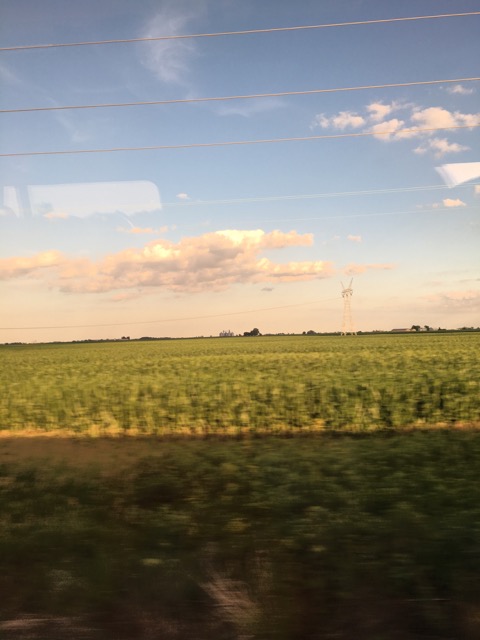
Rushing past rural cornfields in Missouri by train
I spent a quiet Fourth of July watching the heartland of America roll by my train window on a journey from Chicago to St. Louis. Playing in my headphones was the soundtrack of an old educational cartoon called “Schoolhouse Rocks!” In honor of my country’s Independence Day, I was listening to musical explanations of the American Constitution, the concept of “manifest destiny” (the 19th-century idea that expansion of the U.S. from the Atlantic Ocean to the Pacific was justified and inevitable), and the American Revolution. The simplistic way the songs presented information to me as a child in the 1970’s led me to believe that everything my government did was right and good. I completely trusted American authority despite glaring evidence that manifest destiny didn’t work well at all for the Native Americans who already lived in the center of the continent.
Now, in my 40’s, I know better. I see that the America that I live in, is not a nationally shared experience. For instance, the little rural towns I saw from the train are not my day-to-day reality although almost 1/5 of all U.S. residents live in communities like them. Here’s another difference: twenty-three million Americans live in food deserts – urban and rural – with little to no access to fresh fruits and vegetables while others are surrounded by high end grocery stores. Other differences are not bound by location. From sea to shining sea, challenging voices ring out to proclaim “Black Lives Matter” to help everyone understand that shootings of citizens by police officers is a reality for people of some skin tones and not for others. Each person lives a different truth depending on one’s geography, race, income, and a host of other factors. Clearly, for all its wealth and power, the United States is letting many of our people down.
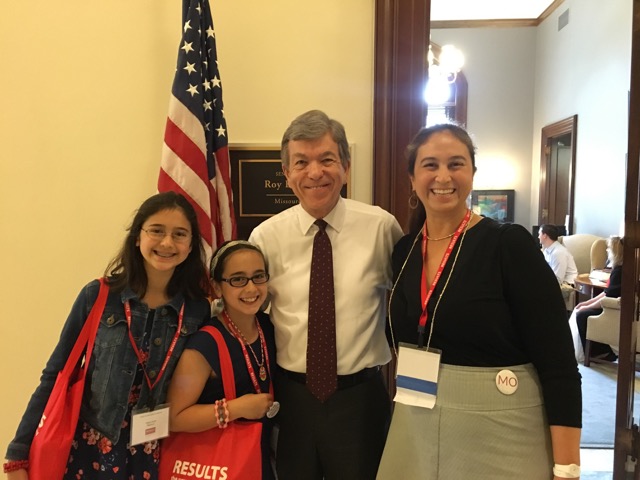
#WorldMom Cindy and her daughters with U.S. Senator Roy Blunt in Washington D.C.
Such everyday injustices are what led me to Washington D.C the week before Independence Day to join hundred of anti-poverty advocates at the RESULTS International Conference and Lobby Day with my daughters. We visited the offices of our elected officials and urged them to change systems that keep so many people in poverty across the U.S. and around the world.
Every year we go, we wade into a hostile partisan landscape. We have to move past the open negativity our leaders show on T.V. in order to connect with the individual humans they are and paint a picture of what life is like for Americans they might never meet. If left to their own devices, party extremists drift further apart. Like a mother bringing arguing siblings back together, it’s our responsibility as citizens to reach out and remind them how they are connected to all of us. In this way, we guide our country toward fairer tax policies, better nutrition, and improved maternal/child health…all with a goal of providing each person with opportunity to reach their full potential in life.
Back on the train, hearing the words of our constitution sung in folk-style harmonies reminded me how every person in our political extremes truly believes she or he is honoring the American founding fathers’ vision. No matter how far apart we are on policy ideas, every one of us wants our country to thrive. We want to be treated with respect and raise our children in safe communities with good schools. We truly have more shared values than we often think we do.
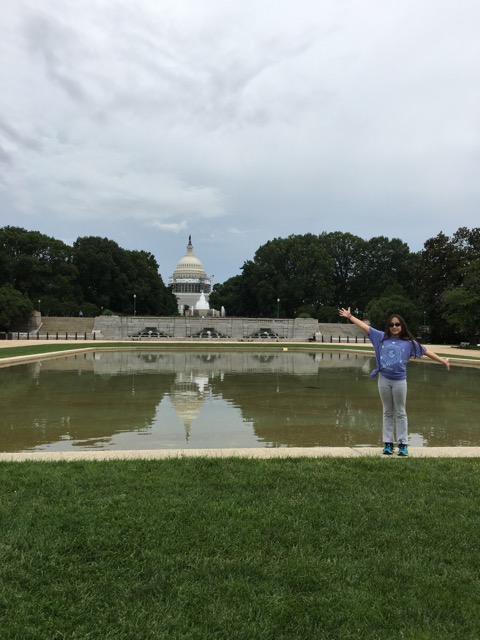
Cindy’s daughter in front of the United States Capitol building
Here is my vision of my country and for my country:
My America is a place where diversity is strength, not something to be feared. It’s where voices can be heard when we find the courage to speak out. It’s a place where my children can live, grow, and thrive. It’s not colorblind. It’s not perfect. It’s not best in the world about everything, but we are a country of possibilities and leadership. My America is a place where we can speak truth to power and come closer to becoming a more perfect union.
How would you finish the phrase “My country is…” for the place you currently call home? What parts of your answer are different for your fellow citizens? How can you be engaged in helping your country be the best it can be for all people?
Cynthia Changyit Levin is a mother, advocate, speaker, and author of the upcoming book “From Changing Diapers to Changing the World: Why Moms Make Great Advocates and How to Get Started.” A rare breed of non-partisan activist who works across a variety of issues, she coaches volunteers of all ages to build productive relationships with members of Congress. She advocated side-by-side with her two children from their toddler to teen years and crafted a new approach to advocacy based upon her strengths as a mother. Cynthia’s writing and work have appeared in The New York Times, The Financial Times, the Washington Post, and many other national and regional publications. She received the 2021 Cameron Duncan Media Award from RESULTS Educational Fund for her citizen journalism on poverty issues. When she’s not changing the world, Cynthia is usually curled up reading sci-fi/fantasy novels or comic books in which someone else is saving the world.
More Posts - Website
Follow Me:





 I want to start out by saying that this is not some sort of fat shaming post – much to the contrary.
I want to start out by saying that this is not some sort of fat shaming post – much to the contrary.










